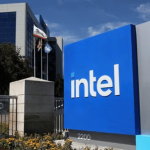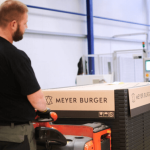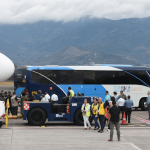
Federal Labor Board Faces Challenges – The National Labor Relations Board (NLRB) is at the centre of a heated legal battle with major employers, including Starbucks, questioning its powers and legitimacy.
Federal Labor Board Faces Challenges – The National Labor Relations Board (NLRB) is at the centre of a heated legal battle with major employers, including Starbucks, questioning its powers and legitimacy. Under the Biden administration, the NLRB has taken a more pro-worker stance, leading to increased organising and strike activities. However, this has resulted in backlash from companies, who accuse the NLRB of overstepping its authority.
Federal Labor Board Faces Challenges
One of the key cases highlighting this conflict is the Starbucks dispute involving the “Memphis 7,” employees fired for attempting to organise a union. Starbucks contends that the NLRB’s powers are being inconsistently applied across different federal courts, leading to what it sees as an unfair advantage for unions. The lower courts, including those reviewing the Memphis 7 case, have required Starbucks to reinstate the fired employees, a decision Starbucks is challenging before the Supreme Court.
NLRB’s Defense:
In response, the NLRB argues that immediate action is necessary to protect workers who are wrongly terminated for union activity. The agency views injunctive relief as a crucial tool to prevent further violations of workers’ rights and to restore the status quo at the workplace. Jennifer Abruzzo, the NLRB’s General Counsel, emphasized the importance of seeking interim relief to prevent lawbreakers from benefiting from their violations over time.
Challenges to NLRB’s Existence:
Beyond the Starbucks case, other high-profile companies, including SpaceX, Amazon, and Trader Joe’s, are challenging the NLRB’s right to exist. SpaceX has filed federal lawsuits questioning the constitutionality of the agency, while others have raised similar arguments before the NLRB’s administrative law judges. These challenges raise concerns about the future of the NLRB and its ability to enforce labour laws effectively.
Potential Supreme Court Decision:
The Supreme Court’s decision in the Starbucks case is expected by the end of June and could have far-reaching implications. With a conservative majority, there are concerns that the Court may rule against the NLRB, setting a precedent that undermines the agency’s authority. Cathy Creighton, an NLRB attorney, expressed concerns that the Court’s current composition may lead to a ruling that weakens the NLRB’s ability to protect workers’ rights.
The conflict between the NLRB and major employers reflects broader tensions in labour relations and the role of government agencies in protecting workers’ rights. The outcome of the Starbucks case and other challenges to the NLRB’s existence will have significant implications for workers, unions, and the future of labour rights enforcement in the United States.







